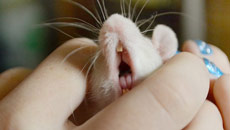Planning to start a family? Stop using marijuana now as cannabis use may put your fertility at risk, especially if you are young.
Young men who use marijuana (or cannabis) may be inadvertently affecting the size and shape of their sperm, a new research shows.
"Our data suggests that marijuana users might be advised to stop using the drug if they are planning to try and start a family," cautioned Allan Pacey, senior lecturer in andrology at University of Sheffield.
The research team from University of Sheffield and University of Manchester also found that sperm size and shape were worse in samples ejaculated in the summer months, but was better in men who had abstained from sexual activity for more than six days.
To reach this conclusion, researchers recruited 2,249 men from 14 fertility clinics and asked them to fill out detailed questionnaires about their medical history and their lifestyle.
Men who produced ejaculates with less than four percent normal sperm were nearly twice as likely to have produced a sample in the summer months (June to August), or if they were younger than 30 years old, to have used marijuana in the three month period prior to ejaculation.
However, other common lifestyle factors reported by men, including smoking cigarettes or drinking alcohol, appeared to have little effect.
"In addition to cannabis exposure shown in this paper, we also know that men exposed to paint strippers and lead are also at risk of having sperm with poor morphology," said Nicola Cherry, professor at University of Alberta.
Only sperm with good sperm morphology are able to pass into the woman's body following sex and make their way to the egg and fertilise it.
The research appeared in the medical journal Human Reproduction.






